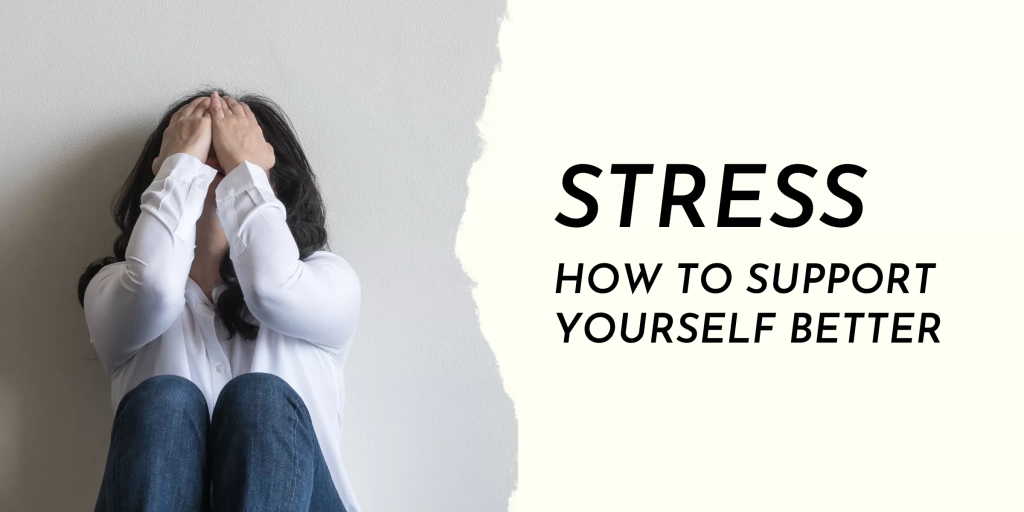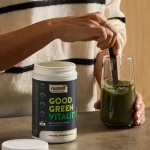

Stress comes in different forms, it can be “good” e.g. demanding situation leading to a beneficial outcome; “tolerable” where the individual has sufficient resilience to overcome or adapt to the stressor; or “toxic” e.g. where the stress response is insufficient, leading to disease. Furthermore, stress has been implicated in the development of many neuropsychiatric disorders, including anxiety, depression and insomnia. (Ref 1)
If you struggle with feeling stressed, the most unhelpful thing you can do is turn to something as an unhealthy coping mechanism such as smoking or drinking. Alternatively, doing nothing can make the problem worse. The keys to good stress management are building emotional strength, being in control of your situation, having a good social network and adopting a positive outlook. Here are some suggestions to reduce stress in an everyday lifestyle:
Exercise can help reduce any emotional intensity, clear thoughts and aid in dealing with problems more calmly. Numerous studies have demonstrated that lower amounts of physical activity or greater amounts of time spent in sedentary behaviours are associated with greater risk of poor mental health. When participants were matched across numerous background and demographic factors, individuals who exercised reported better mental health functioning compared to non-exercisers. (Ref 5)

Relying on alcohol, smoking and caffeine might provide temporary relief, however in the long term they won’t solve any problems, only create new ones. One of the worst side effects of smoking is cardiovascular disease as the chemicals in tobacco can harm the heart and blood vessels, causing atherosclerosis, coronary heart disease, stroke and other cardiovascular disorders. A study was conducted which was based on patients who had been admitted to hospital with an acute ischaemic stroke (AIS). Smokers with thrombolysed AIS were found to have higher cardiovascular disease chances than non-smoker. (Ref 6)
The relationship between diet and behaviour has been a long topic of interest, including the effects of diet on both mental and physical health. There is a limited understanding of how diet affects mental health, and the way outcomes of an unhealthy diet such as obesity interact with stress-related psychiatric disorders. It is known that changes in the diet may influence psychiatric disorders through direct effects on mood, while the development of psychiatric disorders can lead to changes in eating habits. Individuals who are stressed have an increased risk of becoming overweight or obese as cortisol levels are altered which is associated with an increased deposition of intraabdominal fat. (Ref 7)

Anti-stress and anxiolytic activities in ashwagandha have been evaluated earlier in healthy participants, individuals with obesity-related stress, work stress and stress associated with anxiety in different clinical studies to show that the supplement can improve symptoms. Many studies have taken place regarding this topic, one of which was conducted on overweight or mildly obese men and women. It was found that ashwagandha supplementation had a significant reduction in their stress levels, whilst also reduction symptoms of fatigue. (Ref 2) A further study also showed ashwagandha supplementation significantly reduced stress and anxiety levels, reduced sleeplessness and fatigue and reduced serum cortisol levels, compared with placebo. (Ref 3)
Rhodiola rosea, also known as “roseroot”, “golden root” or “artic root”, belongs to the plant family Crassulaceae. Supplementation has shown to improve associative thinking, attention capacity, speed of visual and auditory perception and short-term memory. Among people suffering from life-stress symptoms, R. rosea treatment over four weeks resulted in an overall therapeutic effect with clinically relevant improvements in stress symptoms, stress-related disabilities in work, social and family life and functional impairment. (Ref 4) Moreover, a particular study investigated various aspects of stress symptoms and physiological wellbeing in adults who received R. rosea root extract 200 mg twice daily. All outcome measurements showed significant, consistent and steady improvements in stress symptoms, fatigue, quality of life, mood, concentration, disability, functional impairment and an overall therapeutic effect.
Melatonin is a neurohormone mainly synthesised in the pineal gland and involved in several physiological activities in vertebrates including fish, playing a role in the adaptive behaviour of the animal to the environment. It is a key signal in the regulation of circadian rhythms, such as feeding. Melatonin transduces light/dark cycle to the body and coordinates daily physiological functions and behaviours. Therefore, darkness triggers a polysynaptic pathway beginning with the retino-hypothalamic tract that projects to the nuclei of the hypothalamus and ends as a sympathetic input to the pineal gland. Furthermore, melatonin affects mood state, particularly via modulating the circadian rhythm. Mood disorders, including bipolar disorder, major depressive disorder and seasonal affective disorder are accompanied by circadian and melatonin dysregulation. (Ref 8)
Magnesium status is highly associated with stress levels, with both stress and hypomagnesemia potentiating each other’s negative effects. Foods rich in magnesium include: leafy greens, whole grains, nuts and legumes, white vegetables and fruits like bananas and avocados. The supplement has been shown to level out cortisol – one of the stress hormones. Cortisol is important for acute stress, but in times of chronic stress, it can worsen depression and anxiety. Many studies have explored the effect that magnesium has on reducing cortisol levels. Magnesium can tackle high stress and anxiety by diminishing or blocking the neuroendocrine pathways that send cortisol to the brain.
Research shows that L-theanine supplements can elevate GABA, dopamine and serotonin levels, which promotes relaxation and reduces anxiety levels. (Ref 9) Both green tea (L-theanine) and rhodiola offer acute functional benefits under stress conditions. Green tea is compromised of flavonoids, including L-theanine, and its acute intake in the form of tea or supplements is associated with functional benefits on subjective, physiological and psychological states in acute stress conditions. These include enhanced subjective relaxation, calmness, mood, reduced vigilance and stress, anxiety, cortisol and heart rate responses.
Scientificevidence states incorporating all eight B vitamins in the diet can reduce stress levels. It was found that multivitamins infused with high doses of B vitamins were more effective at diminishing stress and enhanced mood in healthy individuals. Whole foods such as vegetables, legumes and whole grains are best for including vitamin B in the diet. In addition to this, when examining mood, a meta-analysis concluded that providing a supplement containing B vitamins provided a reduction in stress. The benefit of B vitamins was evident in more than half the studies that measured stress, whilst the studies that researched depression symptoms were less evident. This supports the finding of reporting the positive effects of multi-vitamin nutrients (some of which contained a high dose of B vitamins) for stress.
Vitamin D is a fat-soluble vitamin that has been reported to have efficacy in many tissues. There are many studies to show deficiency in this vitamin was associated with symptoms of depression and anxiety, although cause and effect has not been established. PTSD was found to be associated with a wide range of physical and mental disorders, including cardiovascular disease, depression, and anxiety disorders. Furthermore, low vitamin D levels and altered vitamin D metabolism were found to play a role in neuroinflammatory, neurodegenerative and neurodevelopmental disorders like schizophrenia. (Ref 10) From late March/early April to the end of September, most people should be able to make all the vitamin D they need from sunlight. However, between the months October-early March our vitamin D level is reduced which may require supplementation. It can also be found in: oil fish such as sardines, herring and mackerel, red meat, liver, egg yolk and fortified foods such as fat spreads and breakfast cereals.
When thinking about taking vitamins or supplements, it is important to research the product to ensure you will benefit in the correct way from it. You should always talk to your healthcare practitioner if you are unsure or to discuss a suitable dosage. Some precautions you should take when choosing a supplement are:

A moderate amount of stress can help us perform better in challenging situations, however too much for a prolonged amount of time can be unhealthy and lead to physical. When feeling stressed, taking these steps can be useful:
Realise when it is causing you a problem – make the connection between ill or tired with pressures you are faced with. Don’t ignore warnings such as tense muscles, over-tiredness, headaches or migraines. Take breaks when you feel you need them.
Identify the causes – group the possible reasons for causing your stress and try to find a practical solution to them. Try to let go of the things you cannot control.
Review your lifestyle – reflect on your lifestyle and ask yourself if you are taking on too much which isn’t necessary. Prioritise the things that are most important to you so you aren’t doing everything at once and reduce the feeling of being overwhelmed.







Accepting payments via


YourHealthBasket © 2025
detoxpeople Ltd
Registered in England & Wales 07156741
VAT reg GB 103 3641 60
Our new practitioner portal has been released and it’s now easier than ever to link a client’s account and provide them with suggestions using our new protocol system.
Convert your current cart into a protocol which can then be assigned to a linked client.